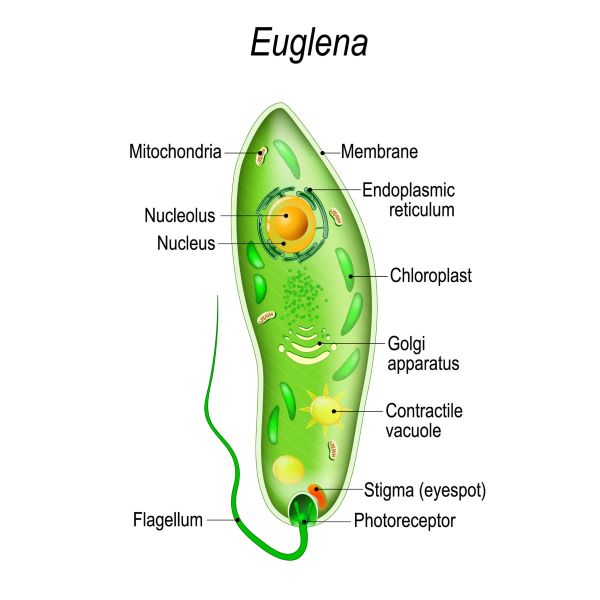Protists have a nucleus because they are eukaryotic organisms. Usually, protist cells contain a single nucleus (they are mononucleate). However, many protists are multinucleated, meaning they contain many nuclei. As in other eukaryotic cells, the protist nucleus houses the cell’s DNA, which controls all the functions of the cell.

Which Organelles Are Found in Protist Cells?
Protists are eukaryotic organisms so, unlike prokaryotes, they contain membrane-bound organelles. All protists have a nucleus, as well as other structures such as endoplasmic reticulum and Golgi apparatus. Many protists also contain mitochondria, and some contain digestive vacuoles and chloroplasts. Plant-like protists (algae) and fungi-like protists (molds) may also contain a cell wall.
Click here to learn more about the structure and characteristics of protists.
